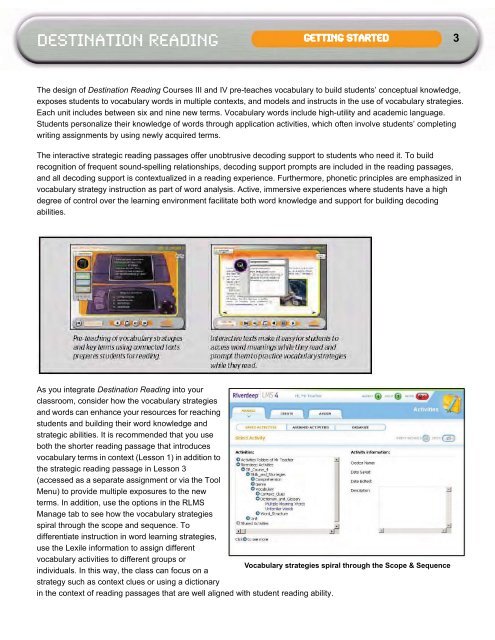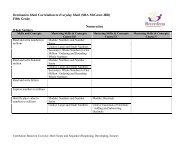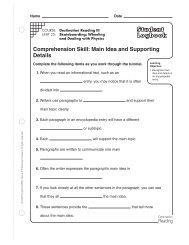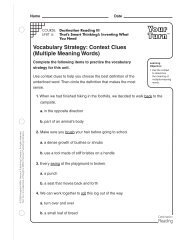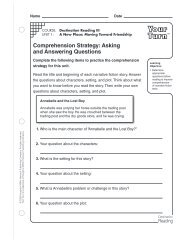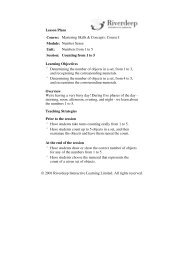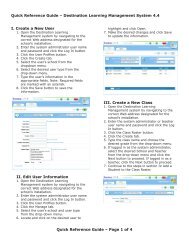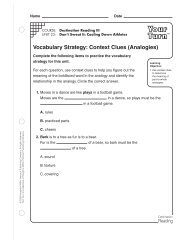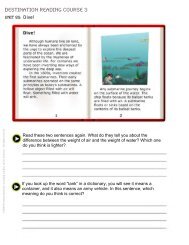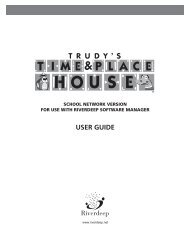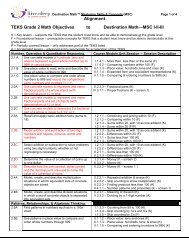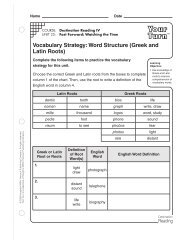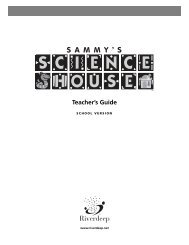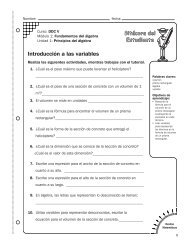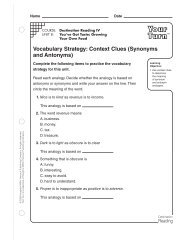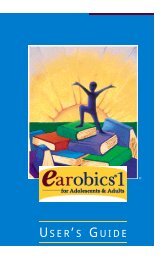Course III Teachers Guide.pdf - Houghton Mifflin Harcourt
Course III Teachers Guide.pdf - Houghton Mifflin Harcourt
Course III Teachers Guide.pdf - Houghton Mifflin Harcourt
You also want an ePaper? Increase the reach of your titles
YUMPU automatically turns print PDFs into web optimized ePapers that Google loves.
DESTINATION READINGGETTING STARTED3The design of Destination Reading <strong>Course</strong>s <strong>III</strong> and IV pre-teaches vocabulary to build students’ conceptual knowledge,exposes students to vocabulary words in multiple contexts, and models and instructs in the use of vocabulary strategies.Each unit includes between six and nine new terms. Vocabulary words include high-utility and academic language.Students personalize their knowledge of words through application activities, which often involve students’ completingwriting assignments by using newly acquired terms.The interactive strategic reading passages offer unobtrusive decoding support to students who need it. To buildrecognition of frequent sound-spelling relationships, decoding support prompts are included in the reading passages,and all decoding support is contextualized in a reading experience. Furthermore, phonetic principles are emphasized invocabulary strategy instruction as part of word analysis. Active, immersive experiences where students have a highdegree of control over the learning environment facilitate both word knowledge and support for building decodingabilities.As you integrate Destination Reading into yourclassroom, consider how the vocabulary strategiesand words can enhance your resources for reachingstudents and building their word knowledge andstrategic abilities. It is recommended that you useboth the shorter reading passage that introducesvocabulary terms in context (Lesson 1) in addition tothe strategic reading passage in Lesson 3(accessed as a separate assignment or via the ToolMenu) to provide multiple exposures to the newterms. In addition, use the options in the RLMSManage tab to see how the vocabulary strategiesspiral through the scope and sequence. Todifferentiate instruction in word learning strategies,use the Lexile information to assign differentvocabulary activities to different groups orVocabulary strategies spiral through the Scope & Sequenceindividuals. In this way, the class can focus on astrategy such as context clues or using a dictionaryin the context of reading passages that are well aligned with student reading ability.


